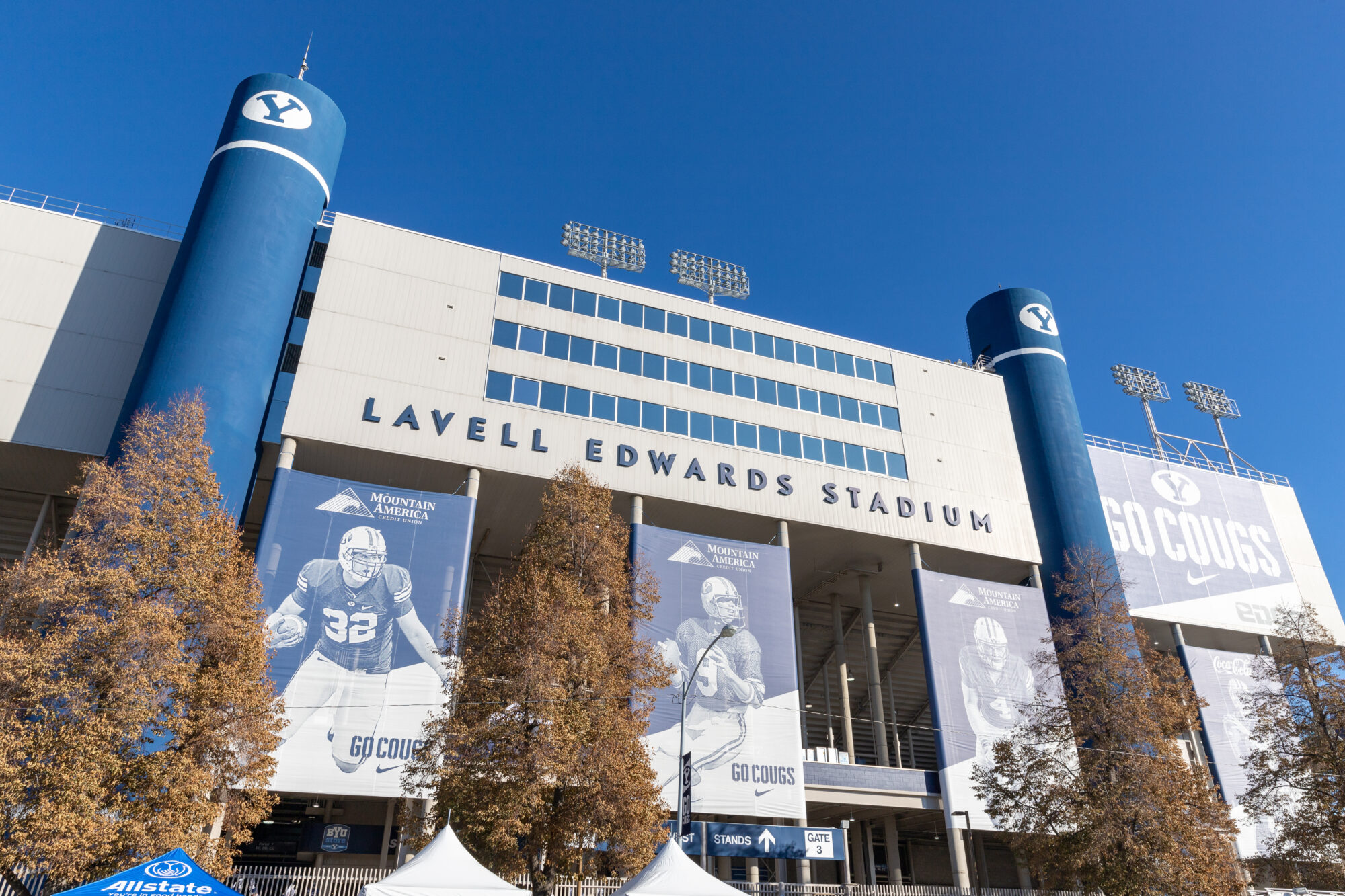
By Jeff Fuller
While recently delving through revenue data for all FBS programs, I noticed that the USAToday filings (to which BYU, and other private universities, don’t report) listed a sub-category for “Ticket Sales.” In my data aggregation project, I tallied up and Tweeted (X-ed) out the total ticket sales data for the last seven years (excluding the COVID year, which is listed as 2021 per USAToday, representing the 2020-21 season), ranking all 105 public FBS schools by this metric.
Cumulative Ticket Sales FBS schools per USAToday since 2016 (excluding 2021 due to COVID; In Millions; PUBLIC SCHOOLS ONLY):
1-10
Texas $383
Ohio State $378
Michigan $317
Texas A&M $287
LSU $258
Oklahoma $257
Arkansas $240
Alabama…— Jeff Fuller (@jjfuller72) August 27, 2023
Wondering where BYU might fit into this, someone pointed out to me that in BYU’s 2019-20 Cougar Club Donor Report, it was disclosed that 26% of all revenue for that year came from Ticket Sales. But 26% of what?
Fortunately, all schools are required to report to the Dept of Education (EADA) and the data for that 2019-20 year showed BYU’s Grand Total Revenue $75.2M. So that would mean that BYU had a total of $19.6M in ticket sales revenue for that year.
So where does BYU fit in nationally when compared to public schools? Well, we have to extrapolate over the same time period, but have two methods to do so:
- Using the $19.6M figure as a fixed amount of ticket revenue and multiplying it by 6 years yields a figure of $117.6M in ticket revenue
- Using the “26% of total revenue” figure and applying it across the actual Grand Total Revenue EADA figures for those years yields: $453M total Rev x 0.26 = $117.8M in ticket revenue
Based on that, it’s reasonable to conclude that BYU had about $118M in ticket sales revenue over the last 7 years. That would place the Cougars at 27th nationally among public schools. Of course, after factoring in private schools with strong reported attendance like Notre Dame and USC, that ranking is probably closer to 30th. But again, that places BYU solidly in the top half of all P5 programs before officially joining a “Power” conference.
Looking at the future Big12 conference, we get the following rankings (excluding TCU/Baylor) for ticket sale revenue in the last six non-COVID seasons:
BYU- $118M
Kansas- $116M
WVU – $112M
Utah – $107M
ISU – $104M
OkSt – $98M
K-State – $92M
Colorado – $92M
UofAz – $91M
TTU – $76M
ASU – $75M
Cincy – $47M
UCF – $31M
Houston – $31M
These figures should not be terribly surprising, seeing that BYU enters this new version of the Big12 with the largest football stadium (63.5K) and the largest basketball arena (18K.) The Cougars are also tops in the Big12 for football attendance and trail only Kansas in basketball attendance.
The bigger and more exciting question remains: how high will the Cougars climb? Based on reports of increased demand for season & single-game tickets in the setting of increased prices it doesn’t take a financial guru to predict that BYU will consistently be in the top 25 in ticket sales revenue.
From BYU’s AD, Tom Holmoe’s, recent letter, addressing some fan’s complaints about rising ticket prices, we see ample evidence that increasing ticket revenue is on the horizon.
“…we are excited to have seen so much added interest in our football program and specifically from so many wanting tickets for the 2023 season. With our ticket base expanding, we knew there would be some growing pains. We realize this has meant that some have been displaced from previous seats and some have been priced out of season tickets…
“The fact is that the demand is outpacing the supply for season tickets available. While we understand the frustration from some about what it means for them, overall, this a very good thing and very good sign of the health of our program among fans, alumni, donors and corporate sponsors. A rising tide lifts all boats.
“ But just because there is more demand for tickets, that doesn’t mean we’ve raised ticket prices or displaced ticket holders simply because we could. The truth is, that we need to do this. We need strong, better and new revenue generation processes. …
“As football season ticket renewals wrap up, we will begin a similar process starting up for basketball in June. Similarly, we anticipate demand outpacing supply.”
The new Basketball Season ticket renewal policies confirm Tom’s last line.
While some Cougar faithful bemoan these changes and will use the figures presented above as evidence of “price gouging,” I must agree with Tom that these are the kind of problems we want to be having. Hopefully these increased funds are wisely allocated, making BYU’s athletic programs stronger and laying the foundation for greater success and security moving forward. By most recent analyses and reports, money spent on recruiting and NIL groups (such as CougConnect and the Royal Blue Collective) seem to have the highest return on investment for on-field success. Since schools can’t directly fund NIL groups, fans should donate to them directly.
UNLOCK THE LATEST LOCAL SPORTS INSIGHT & CONTEST INFORMATION STRAIGHT TO YOUR INBOX WEEKLY!




